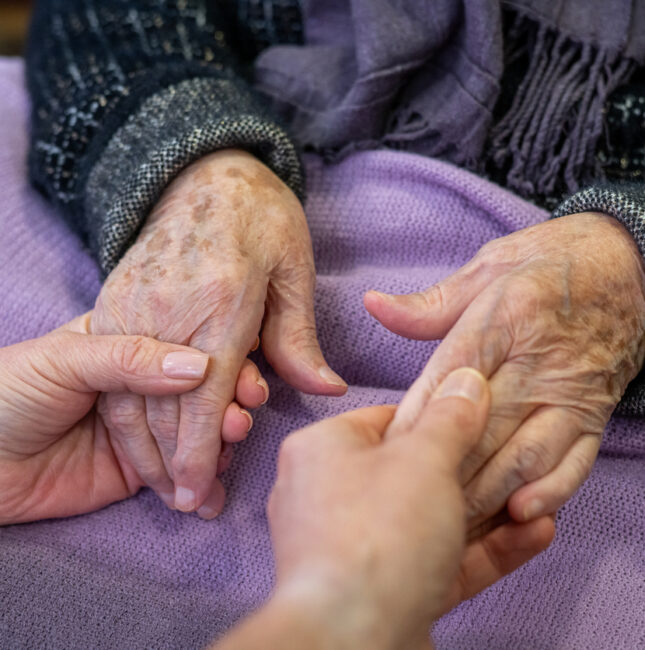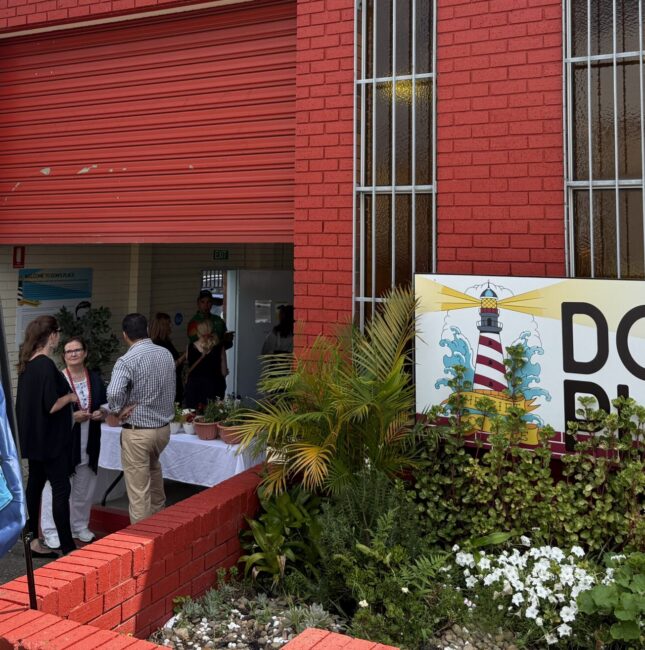Maria & Alberto grapple with separation
January 11, 2022
Marriage or relationship breakdown is never easy, especially when children are involved, but our Family Dispute Resolution program helps open up the lines of communication again and assists parties to move forward in the best possible way.
Maria and Alberto came to Australia from Europe for Alberto’s work. They have two children and while in Australia they separated.
“The separation was a very difficult one, as they usually are, with a lot of anger and pain being held by Maria and Alberto,” says CatholicCare mediator, Suzanne.
“Both parents were grappling with the difficulties of separating in a foreign land, Maria having no status to work and her whole financial support being tied to Alberto.”
“The situation was complicated further with the reality that Alberto’s role in his company was fast coming to an end and he wanted to return to their home country while Maria was wanting to stay in Australia and raise the family here.”
They attended two mediations to try and help them move forward.
“The first one didn’t go great,” says Suzanne.
“Maria refused to look at Alberto throughout the mediation, so we had to adjust the room so they weren’t facing each other directly. There were several times we had to break and provide private sessions to give both parties the space to calm down and come back into the conversation.”
That mediation session ended with no substantive result, and they agreed that Suzanne would check in with them the following week.
When she did check in with both Maria and Alberto, they told her they were grateful for the supportive environment and the opportunity to talk in that format. They apologised for the emotions in the room and requested a return to mediation to continue their discussions.
“The second mediation started fairly similarly to the first, with a lot of emotion flowing in the room, but there was progress,” says Suzanne.
“They had agreed prior to mediation that they would apply for Australian citizenship and had begun that process. What followed was a rollercoaster conversation, with agreements, tears and allegations of infidelity.
“The part that makes this memorable for us was Maria asking, ‘Why did you leave me?’” Suzanne says. “And while our focus isn’t on healing the past or in any sense a therapeutic process, Alberto was happy to discuss that issue with the hope that it would move things forward.”
“Alberto expressed sadness for the ending of their relationship, the pain of feeling like he could no longer live with the woman that he loves, and accepted an invitation to attend counselling to continue to work on their relationship, either in terms of co-parenting or returning to the marriage.
Suzanne says Maria and Alberto’s experience showed the value of Family Dispute Resolution to couples experiencing relationship breakdown.
“There was no groundbreaking agreement reached, but hopefully enough came from it to offer some structure for their children and some space for them as parents,” she says.
There was no cure-all for their troubles, but both Maria and Alberto felt supported enough by our mediation team to share their vulnerabilities and explore what a lot of the time people are quick to avoid.
The offer of an open discussion and knowing when to give people some latitude to speak, and not be focused on getting to an agreement can be more beneficial than many would think.
Family Dispute Resolution (FDR), often referred to as mediation, is a voluntary process that assists separating families to discuss issues and generate options to reach agreements involving children, families, property and finances.
The Family Law Act requires separating families to make a genuine effort to resolve their parenting issues at FDR before making an application to the court (some exceptions apply). If you are unable to reach an agreement at FDR, and your matter involves children, you will need a S60i Certificate from an FDR
practitioner to make an application to the court.
Currently there are no legal requirements to attempt to resolve financial issues through FDR before applying to court, however many people find it useful to undertake FDR as a more positive, less costly alternative to court.
Our practitioners
Our experienced FDR practitioners/mediators are accredited and registered with the Attorney Generals Department. FDR practitioners do not take sides, or make decisions for you. Our practitioners support both parties to focus on the best interests of the children. We endeavour to provide a gender-balanced, co-mediation model of FDR and can assist you to access any support services you may require.
How quickly can we meet?
Depending on client availability, we try to see clients for their initial assessment within a 2 week time frame.
What to expect
Initially each party meets separately with an FDR practitioner for an assessment. This is an opportunity to speak confidentially to the FDR practitioner. The practitioner then assesses whether FDR is suitable for your situation. Information is given about the process, children’s needs and how to prepare for a joint session. After assessment both parties will be asked to complete an online pre-mediation course which takes approximately 30 minutes to complete. If FDR is considered appropriate, a joint confidential mediation will be scheduled. More than one mediation session may be required.
Common topics
Topics for FDR include (but are not limited to):
• Parenting agreements
• Time children spend with their parents
• Changeovers
• Communication
• Children’s education
• Special days eg. Christmas
• School holidays
• Financial contributions
• Spending time with grandparents
• Property/financial division
Post-separation parenting course
We offer an optional post-separation parenting course called Keeping Kids in Mind. This is an intensive 5 week course for separated parents experiencing medium to high levels of entrenched conflict. It aims to help parents understand the effects of conflict on their children, and find better ways to reduce conflict and emotionally support their children.
Fees
All fees are subsidised and reasonable. Concession card holder fees are also available. CatholicCare will not refuse service in cases of genuine financial hardship.
FORE MORE INFO & BOOKINGS:
P: 1800 324 924
E: info@catholiccaredbb.org.au
W: catholiccaredbb.org.au
More news stories like this one
Introducing Crossroad Companions end of life service
When you receive a terminal diagnosis, life can suddenly feel uncertain and overwhelming. Questions arise, roles change, and you may find yourself moving from one medical team to the next. We're here to help.
Read MoreWorld Day of Social Justice – injustice isn’t accidental
World Day of Social Justice isn’t about slogans or good intentions. It’s about facing an uncomfortable truth - the systems we live within do not work equally for everyone, and pretending otherwise costs people their dignity, safety and hope.
Read More70 coffees for one great cause – Dom’s Place!
Eight Dom’s Place visitors recently completed barista training but the coffee cart isn’t just about serving coffee - it’s a practical way for them to develop pre-employment skills while contributing to the community.
Read More


